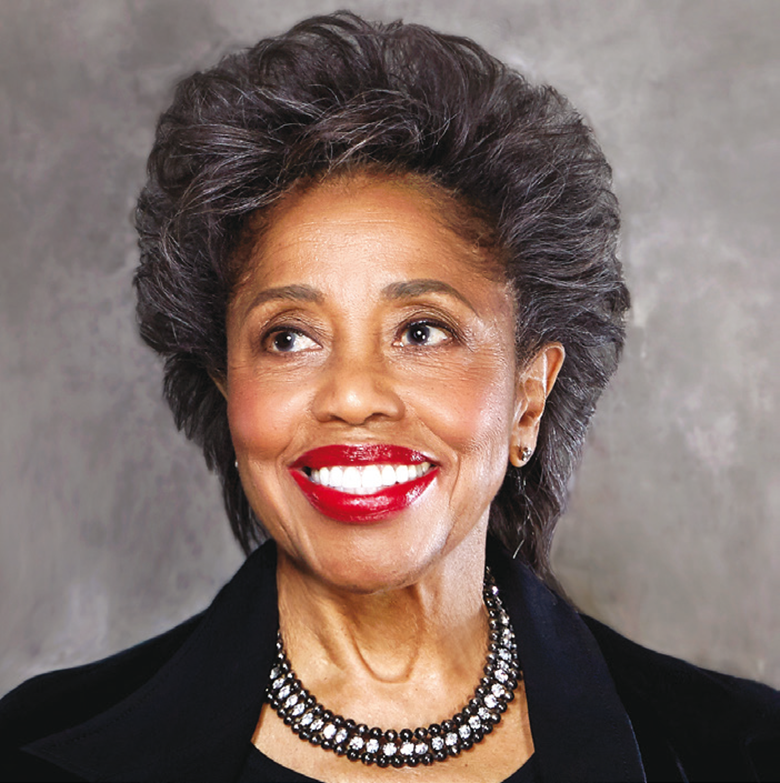‘I’m a very curious person’: Q&A with Tania Léon, LPO composer in residence
Florence Lockheart
Monday, November 27, 2023
Ever since she arrived in the US in 1967, Tania Léon has been a vital part of New York’s classical music scene. Florence Lockheart finds out more about the Havana-born composer as she takes up residency with the London Philharmonic Orchestra

Gail Hadani
When accepting the role of composer-in-residence with the LPO, you said you look forward to getting to know the orchestra. How important is this personal connection to the creation of music for a specific ensemble?
I don’t know if we are going to have a chance to really converse candidly, but watching them play, hearing their sound, is very revealing for a composer. It doesn’t have to be personal, but I like the personal aspect because I am a musician. I express myself through composing, conducting and teaching, but in my most intimate moments I go back to the piano. I know that each musician has that communication with their instrument and with the way they make music.
During your tenure with the LPO you will also hold Carnegie Hall’s Composer’s Chair. How does collaboration differ across the Atlantic?
It’s going to be different. At Carnegie Hall I am going to contribute to the calendar of events by helping to design concerts embracing the concept of ‘newness’. My predecessor, flautist Claire Chase, explored a lot of new vistas in contemporary music throughout her residency, something that all of us aim to do in this position.
As well as premiering a piece of mine, there will be several of my works in different programmes, and I’m going to be working with one of the Hall’s ensembles in residence, Ensemble Connect.
You left Cuba as a pianist. How did you navigate the transition to composing?
I have been surprised about the fate of my life. I left Cuba straight out of the Conservatory, intending to go to Paris. In Cuba I wrote songs with my brother, but at that time it was not in my calling, so I left my native land as a pianist and I really became a composer in the US.
One of the things that provoked the transition was joining forces with Arthur Mitchell, a founding member of the Dance Theatre of Harlem, who asked me to write for him. Then I started meeting living composers like John Cage, Miriam Gideon, Joan Tower and Philip Glass, who were a total inspiration. I’m a very curious person. If I found a piece of music intriguing, I would seek out the score. I wanted to understand the mind of that composer. New musical languages captivate me completely. It’s a constant learning process about other forms of music that I didn’t know existed.
You received a Kennedy Centre Honor in 2022. What does this mean to you?
I was very surprised when I was chosen for the Kennedy Centre Honor – I had no idea that I was nominated. I was very moved because the life I’ve had since my arrival has been characterised by friendship and collaboration, both with other composers and with the music world at large. I’ve worked on making sure the community is vibrant, so it was very emotional for me to see that I created an impact.
You started your composition career as resident composer and music director of the Dance Theatre of Harlem, so how does dance manifest in your works?
Not all my music is about dance, but you can hear movement, it’s something that is part of my language. It’s not intentional, it just happens. I think that has to do with my place of origin. Everybody on the island of Cuba, whether they went to a Conservatory or not, is some kind of a musician. Movement is a huge part of the culture. People in the street have a certain sway when they walk. I always say, “I conduct Stravinsky, I play Hindemith, but I dance salsa.” It’s part of my expression and my environment.
You co-founded Sonidos de las Américas Festivals, which highlights the contribution of Latin American culture. What tips do you have for embracing Latin American culture in arts programming?
The only thing we can start with is a willingness to do it, a willingness to find the composers out there. At the conservatory, we studied the Russian composers who created music using their own cultural language. That’s how I see Latin America: as a contributor, working with our own cultural language. We studied the music of composers born in Europe, but it’s a specific vision of the world. Now, thanks to the internet and the incredible communication that we have globally, we can learn more about music created by other cultures.
I say that my music has an accent just like I speak with an accent. I try not to make all my pieces the same, but there are some elements that are going to reveal that it’s me. In a way, everybody speaks with an accent; it’s what they have learned from their families, from their environment, from the places they migrate to. I find that as human beings, we are very, very interesting – all of us. Each person is a world that is unknown to each other. It’s fascinating.